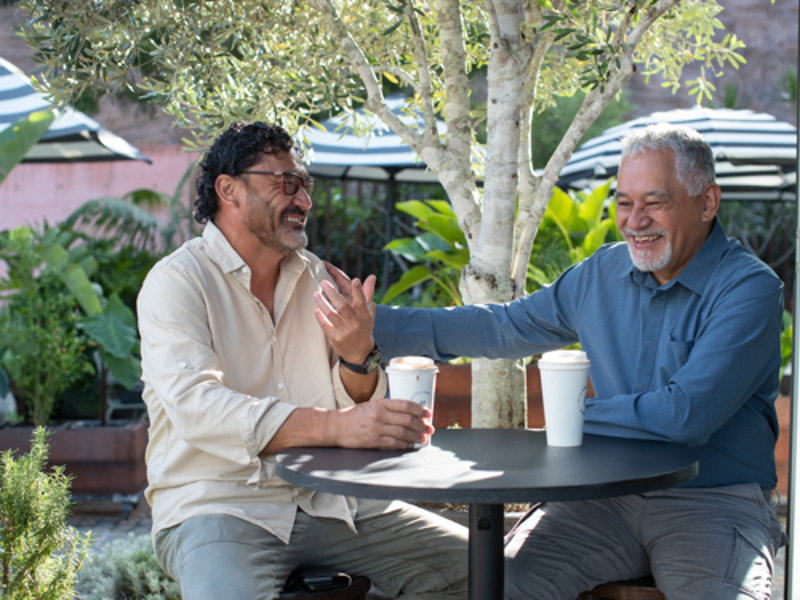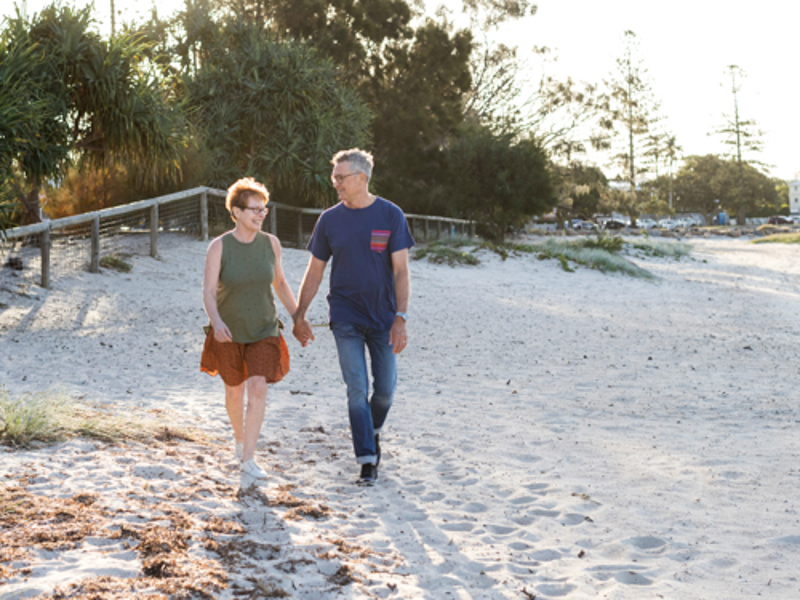
Everything you need to know about scalp cooling
Finishing cancer treatment is an exciting time for patients and their families, and for most people their cancer will never come back.
However, there is a chance your cancer can return after your treatment has finished, which is known as cancer recurrence. Cancer may return near the area of your original cancer, called a local recurrence, or in another part of your body, called a metastasis. The cancer that returns is made up of the same type of cells as your original cancer and can occur months or even many years after your treatment.
Sometimes, people can get a new cancer that is different from the cancer they have had previously. This is a new cancer and is different from cancer recurrence.
Unlike some other diseases, once you have completed your cancer treatment it is difficult to tell if you have been completely cured of cancer.
Rather than ‘cured’, your doctor may use terms such as ‘cancer-free,’ ‘no evidence of disease’ (NED), or ‘no evidence of cancer recurrence’, meaning that your scans, tests and other examinations have not shown any evidence of cancer.
If your cancer returns, it is most likely to happen within the five years following the end of your treatment. In Australia we are fortunate to have one of the highest survival rates in the world and, for most types of cancer, survival rates continue to improve over time.
The five-year survival rate is a statistical term used to describe the percentage of people alive five years after their cancer diagnosis. For example, in 2021 the five-year survival rate for breast cancer is 91% and the five-year survival rate for prostate cancer is 95%. The ten-year survival rate is another measure that is used to describe the percentage of people alive ten years after their diagnosis.
For most types of cancer, the more time that passes, the less likely it is that cancer recurrence will occur.

Cancer treatment using surgery, radiation therapy and anti-cancer drugs, such as chemotherapy, work by removing or destroying cancer cells and stopping their growth.
However, there may be some microscopic cancer cells which survive cancer treatment and remain in your body after treatment ends.
It can appear that there are no signs of cancer in your body because these remaining cells may be invisible in tests or scans because they are so small. This could happen if:
Some of the cancer cells have spread to other parts of the body
The cancer cells are dormant and resting (rather than multiplying and growing) and are unable to be detected
Over time, the remaining cancer cells may grow until they are able to be detected or begin causing signs and symptoms.
Even if your cancerous organ has been removed, there is a risk that some microscopic cancer cells can remain in your body. These cells can stay in the same area and cause a local recurrence, or they may be able to spread to a different part of the body and cause a distant recurrence (metastasis). This is the reason that radiation therapy and chemotherapy are sometimes recommended after surgery for cancer.
For example, even after successful surgery to remove a cancerous tumour in the breast, there is a risk of microscopic cancer cells being left in the breast. Radiation therapy is usually recommended to the rest of the breast to destroy these potential residual microscopic cancer cells and try and prevent a local recurrence in the breast. If there is a concern that microscopic breast cancer cells may have also spread to other parts of the body, then drug treatment is usually recommended to reduce the risk of a breast cancer recurrence in another area, such as the bone.
There have been some rare cases of spontaneous regression of cancer, where a person’s cancer has disappeared or reduced without treatment. In these reports, it is thought that the patient’s own immune system was triggered in some way to fight the cancer.

The following cancers generally have higher rates of recurrence compared to other cancer types:
Glioblastoma multiforme (a type of brain cancer)
Some types of bladder cancer
Pancreatic cancer
It is difficult for your doctor to predict if your cancer will return. However, there are some factors that may affect the risk of cancer recurrence. These include:
The type and stage of your cancer
The type of treatment you received
Your age
Your overall health and lifestyle
After your treatment has finished, you will have regular follow-up visits with your doctors and medical team to ensure you have recovered from treatment side effects and to help detect any evidence of cancer recurrence. Some patients may also have regular scans and blood tests, depending on their type of cancer.
There are many other ways to help keep yourself as healthy as possible and to reduce the risk of cancer recurrence, such as:
Maintaining a healthy weight
Keeping a healthy balanced diet
Staying active
Looking after your emotional wellbeing
Avoiding smoking and other known carcinogens
Reducing alcohol consumption

It is normal for cancer survivors to worry about their cancer returning. However, if the fear of recurrence is causing you to become overly stressed and anxious or it interferes with your daily life, there is help available.
If you are feeling overwhelmed, we encourage you to speak with your doctor, counsellor or psychologist who can provide coping strategies to help you manage your concerns and fears. Some cancer survivors find that joining a cancer support group or online community and connecting with others in a similar situation can be helpful.
View a list of helpful support organisations.
If your cancer comes back, your care team will be there to help guide you through this difficult time.
Depending on where your cancer has returned, it may be possible to receive further treatment. For cancer that has returned locally, surgery, radiation therapy or chemotherapy (similar to your original cancer treatment) may be a suitable option for you.
If your cancer has returned in another part of your body (metastatic cancer), a combination of treatments including using targeted therapy or immunotherapy may also be of benefit, alongside the potential to participate in a clinical trial (if eligible).
When cancer is advanced or widespread, it is not usually curable. The focus may be on controlling the growth of your cancer and managing your symptoms to help you maintain your quality of life. Your doctor and care team will help you to understand your treatment options and decide which treatment is best for you.
The content on the Icon Cancer Centre website is for informational purposes only and should not be considered medical advice. It is not a substitute for consultation with a qualified medical practitioner. For personalised medical guidance, please consult with your GP or another qualified healthcare provider.
Discover our comprehensive collection of content designed to inform, support, and guide you through every aspect of cancer care. From the latest news and updates to personal patient experiences and educational resources, these materials provide valuable insights to help you better understand cancer, treatment options, and the journey ahead.